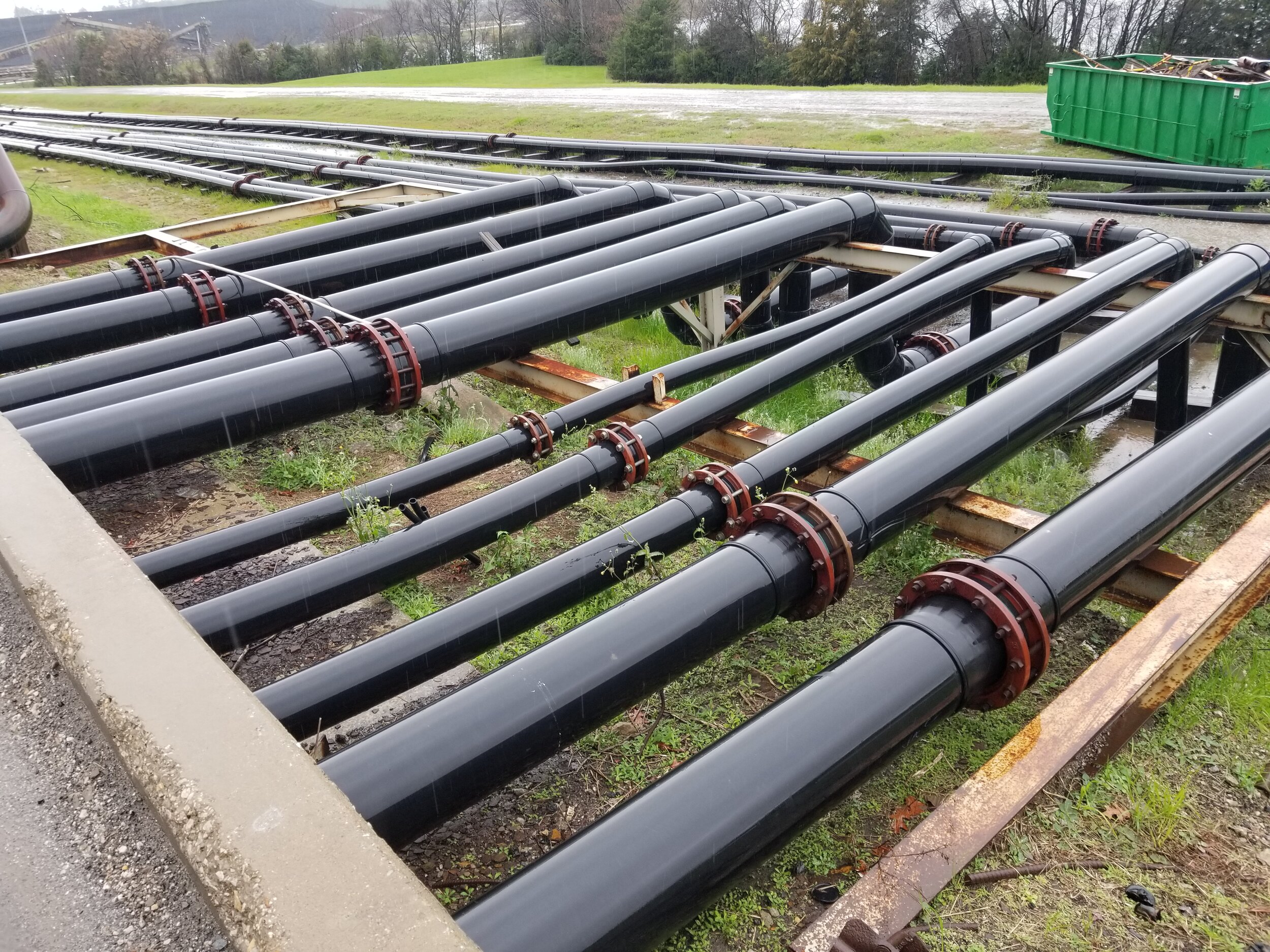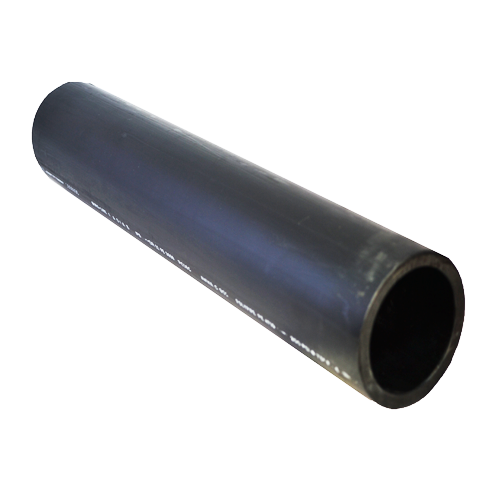How American Plastics HDPE Pipe for Oilfield Supports Oilfield Operations
A Comprehensive Overview to the Numerous Uses of HDPE Pipeline in Building And Construction and Market
HDPE pipes have become a critical component in contemporary building and commercial applications. Their distinct homes, such as resistance to rust and light-weight layout, make them appropriate for a vast array of usages. From water systems to farming watering, HDPE pipelines use services that boost efficiency and sustainability. Comprehending their diverse applications is vital for specialists seeking to enhance infrastructure. What specific advantages do these pipes give each industry?
Water System and Distribution Systems
Supply of water and circulation systems are important elements of city infrastructure, commonly depending on high-density polyethylene (HDPE) pipelines for their durability and effectiveness. These systems transport drinkable water from treatment centers to customers, guaranteeing ease of access and security. HDPE pipelines are favored for their resistance to deterioration, chemicals, and severe temperatures, which boosts their durability and minimizes maintenance prices. Furthermore, their light-weight nature enables for much easier setup and transportation, making them suitable for various city and rural applications.
The versatility of HDPE pipes allows them to be installed in tight areas and around obstacles, minimizing the requirement for substantial excavation (custom hdpe pipe manufacturing Midland TX). Their smooth indoor surface minimizes friction losses, improving water flow rates. As cities remain to expand, the demand for trusted water systems enhances, placing HDPE pipes as a lasting service for modern facilities jobs. Their tested performance history makes them a preferred option among engineers and city coordinators alike
Wastewater Administration and Treatment
Reliable wastewater management and therapy are essential for keeping public health and ecological high quality. HDPE pipes play a crucial duty in this process due to their sturdiness, resistance to rust, and ability to stand up to harsh chemicals. These pipes are generally made use of in different applications, including sewer systems, stormwater drain, and wastewater treatment facilities. Their light-weight nature promotes less complicated setup and transportation, lowering labor costs and time.
On top of that, HDPE pipelines have a smooth interior surface area that lessens rubbing loss, promoting reliable circulation rates. They are also much less prone to leaks and failings contrasted to conventional products, making certain that pollutants are included efficiently. Furthermore, their versatility allows for versatility in different soil conditions, making them appropriate for diverse environmental setups. As sectors progressively prioritize lasting techniques, making use of HDPE pipelines in wastewater monitoring systems aligns with goals for decreasing ecological impact and boosting source recovery.
Agricultural Watering Solutions
In farming setups, efficient watering solutions are important for enhancing crop yields and taking care of water sources. HDPE (High-Density Polyethylene) pipelines play a vital function in contemporary irrigation systems due to their resilience, flexibility, and resistance to rust. Their ability to stand up to high stress makes them excellent for both surface area and subsurface watering applications, ensuring uniform water distribution throughout areas.
Farmers can make use of HDPE pipelines in drip watering systems, which supply water directly to plant origins, decreasing wastage and advertising healthy development. Additionally, these pipes are lightweight and simple to set up, reducing labor costs and installment time. Their lengthy life-span and low upkeep requirements even more improve their charm in farming practices.
HDPE pipes are eco pleasant, as they can be recycled and do not leach hazardous chemicals right into the dirt. This makes them a lasting option for farmers aiming to adopt eco-friendly farming approaches while making the most of productivity.
Industrial Applications and Processes
Versatility is a trademark of HDPE pipes, making them vital in different industrial applications and procedures. These pipes are extensively made use of in chemical processing industries as a result of their superb resistance to a variety of destructive compounds. HDPE's light-weight nature, combined with high tensile stamina, allows for very easy installment and long-lasting efficiency sought after settings.
In the oil and gas market, HDPE pipes play a necessary role in carrying hydrocarbons and gases, many thanks to their durability and flexibility - custom hdpe pipe manufacturing Midland TX. Furthermore, they are employed in mining procedures for the transportation of slurry and other products, where traditional piping systems may fail
HDPE pipes are progressively used in making centers for water supply lines and wastewater management. Their ability to hold up against severe temperatures and stress makes them ideal for a selection of industrial procedures. On the whole, HDPE pipelines add substantially to efficiency and safety and security across varied industrial applications.
Stormwater Monitoring and Drainage Systems
Stormwater administration and drainage systems are vital elements in urban framework, created to take care of excess rainfall and minimize flooding dangers. High-density polyethylene (HDPE) pipes are significantly used her response in these systems as a result of their resilience, flexibility, and resistance to rust. These pipelines successfully transport stormwater far from booming locations, decreasing surface runoff and protecting against waterlogging.
HDPE's lightweight nature facilitates less complicated setup, decreasing labor costs and construction time. In addition, its resistance to chemicals and ecological stressors warranties durability and reliability in different climates. In addition to typical drain applications, HDPE pipelines are also utilized in ingenious visit their website solutions such as eco-friendly infrastructure, which consists of rain gardens and absorptive sidewalks.

Regularly Asked Inquiries
How Does HDPE Pipe Contrast to PVC Pipe in Cost?
Generally, HDPE pipe tends to be extra pricey than PVC pipe due to its enhanced longevity and versatility. However, long-term expense factors to consider, such as upkeep and life expectancy, might prefer HDPE in particular applications.

What Is the Life Expectancy of HDPE Pipeline Under Varying Conditions?
HDPE pipes normally have a life-span of 50 to 100 years, relying on environmental problems, installation practices, and use. Factors such as temperature, soil type, and exposure to chemicals can greatly influence their sturdiness.
Can HDPE Piping Be Recycled After Usage?
Yes, HDPE pipelines can be reused after use. The recycling procedure includes melting down the product, permitting it to be repurposed right into new items, thereby advertising sustainability and reducing ecological effect connected with plastic waste.
Are There Any Type Of Specific Installation Challenges With HDPE Pipes?
Installment difficulties with HDPE pipes include appropriate jointing strategies, making certain sufficient trench problems, and handling thermal growth. Additionally, experienced labor is required to take care of specialized devices, which can complicate the installment process in numerous settings.

What Qualifications Should I Look for When Acquiring HDPE Pipings?
When acquiring HDPE pipes, one need to look for qualifications such as ASTM, AASHTO, and ISO, which validate top quality and compliance with industry standards, assuring longevity and performance in numerous applications. visit homepage - Texas hdpe pipe manufacturer